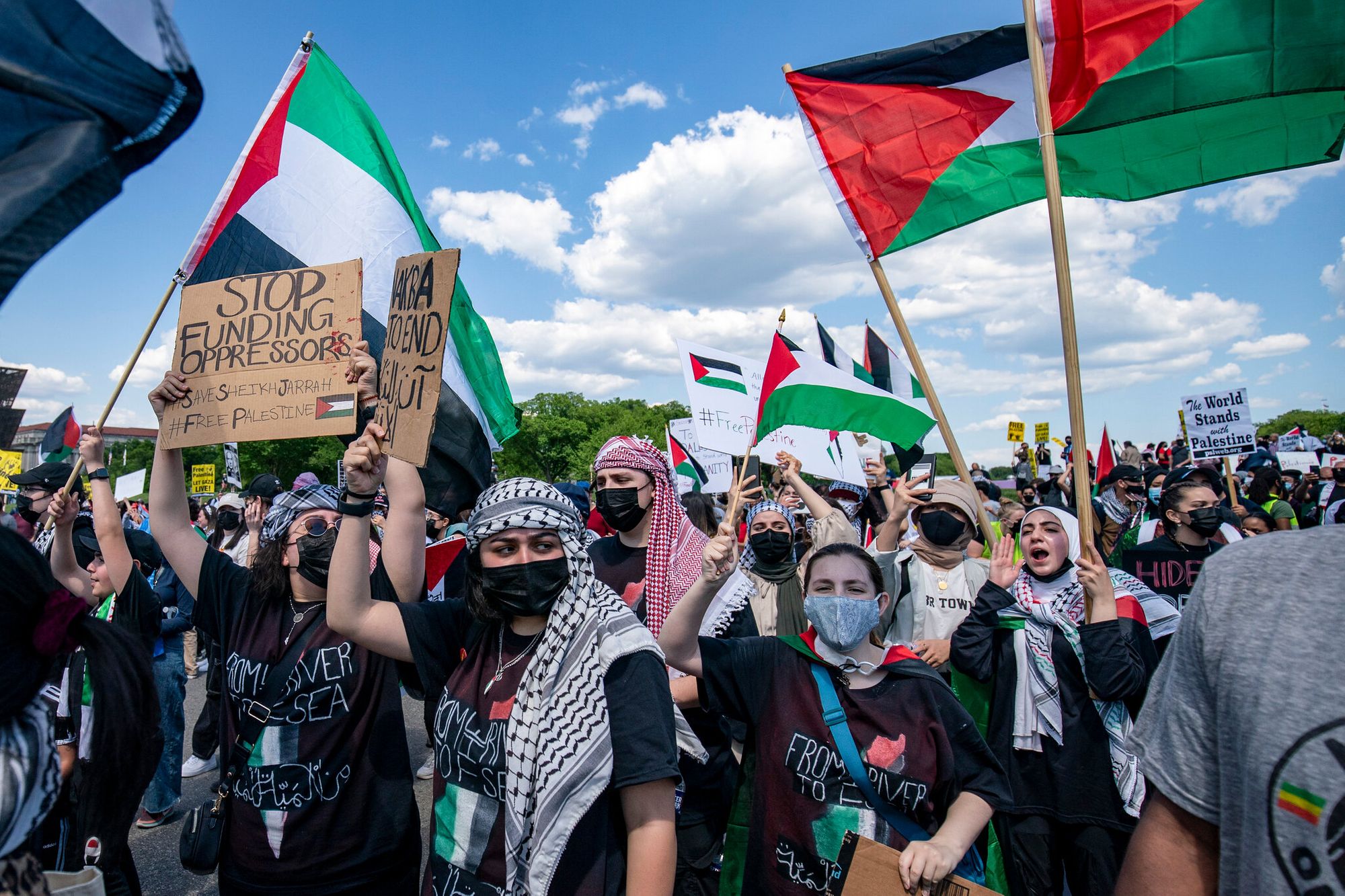Recently, the world has witnessed a burgeoning international movement that is challenging not only Western hegemony but the capitalist structures that underpin it. Protests, rallies, and marches have emerged as potent expressions of this collective resistance, highlighting the need for systemic change and global solidarity. One such historic event took place recently in Washington, D.C., where thousands of pro-Palestine protesters staged a massive march. This event is just one example of the burgeoning anti-capitalist and anti-Western sentiment on a global scale.
The Palestinian cause has become a focal point for these protests, as activists, from all walks of life, have come together to demand justice and peace in a region plagued by conflict. The demonstrations against Israel's occupation of Gaza have galvanized individuals who believe that it is essential to stand against oppression and aggression. These protests represent an outcry against the indiscriminate bombardment of Gaza and the displacement of thousands.
The remarkable aspect of these protests is the diversity of those involved. Labor organizers, black civil rights activists, Jewish anti-Zionists, and antiwar veterans have joined forces to amplify their message. Thousands of young Jewish Americans have participated, defying the traditional support of Israel by some segments of the American Jewish community.
These protests and rallies culminated in the National March on Washington for a Free Palestine, the largest demonstration for Palestine in U.S. history, according to organizers, with an estimated 300,000 participants. This event, organized by various groups, brought together people from different backgrounds to express their solidarity with the Palestinian cause. The sheer scale of this demonstration is a testament to the growing strength of the global anti-capitalist and anti-Western movement.
The divide between the public and the U.S. government's stance on issues like the Israeli-Palestinian conflict is becoming increasingly evident. Recent polls indicate that a significant portion of the American public, especially younger generations, disapprove of Israel's approach to the conflict and support humanitarian assistance for those suffering in Gaza. This disparity underscores the disconnect between the government and the people, revealing the influence of lobbying and special interests on foreign policy.
In Congress, a resolution called "Ceasefire Now" has gained support, demonstrating a shift in the political landscape. Members of Congress, like Rashida Tlaib, Alexandria Ocasio-Cortez, and Ayanna Pressley, have added their names to this resolution. The antiwar movement is putting pressure on lawmakers to rethink their stance on foreign policy and support justice and peace.
The recent protests are reminiscent of the antiwar movements that opposed the Iraq invasion in 2003. However, today's movement is more diverse, organized, and strategically savvy, reflecting the lessons learned from past mobilizations.
In conclusion, the global movement against Western hegemony and capitalism is gaining momentum, and the Palestinian cause has become a symbol of this struggle. The protests in the U.S. and worldwide highlight the power of collective action and the demand for systemic change. As global solidarity grows, so does the hope for a more just and equitable world.

